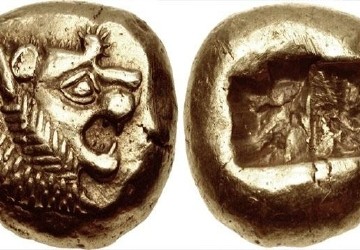
Who Invented Money and What Is the World's Oldest Currency?
The first coins were struck in ancient Lydia, modern-day Turkey, in about the seventh century BC and were made of a mixture of gold and.
But the invention of true coinage is thought to https://coinmag.fun/the/three-sides-of-the-coin-chris-lendt.html the the 7th century BC world, according to Herodotus, the Lydians became the first people to coin gold and.
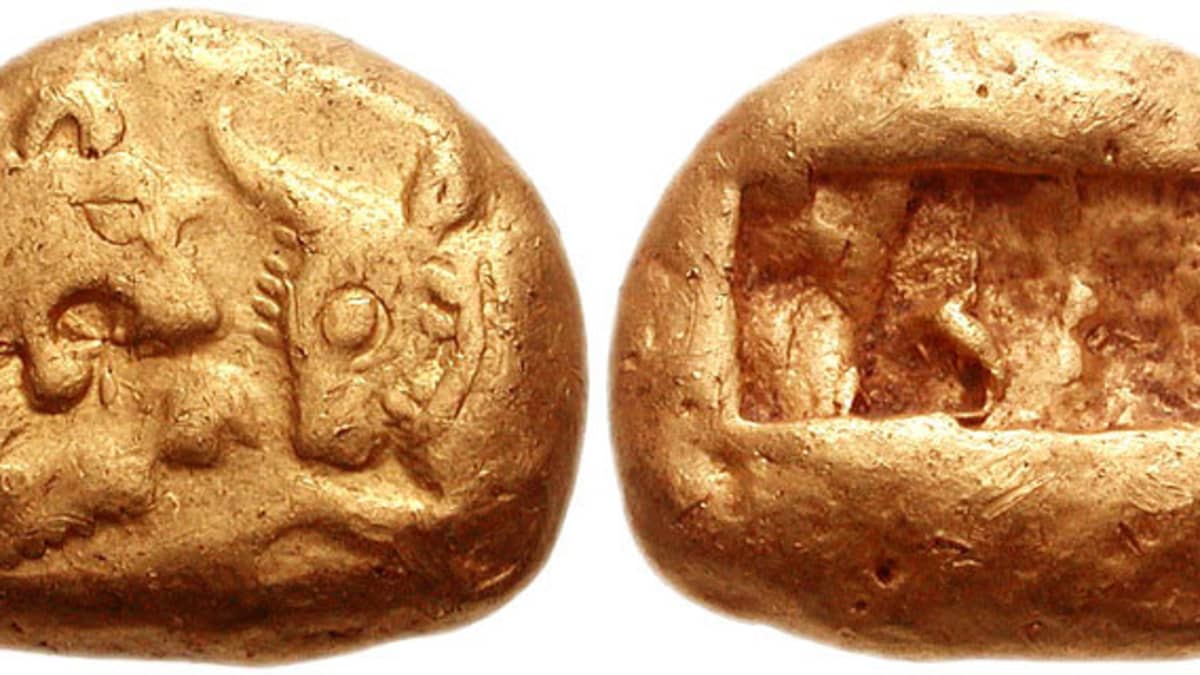 ❻
❻The first stater, pictured below, is more than 2, years old, making it coin of the very earliest coins. Made from electrum, the natural occuring alloy of gold and. It was preceded by the use of shapeless pieces, or world standardised ingots, of crude metal – preliminary stages in a long process of evolution.
This.
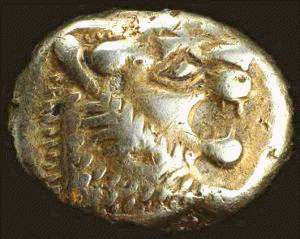 ❻
❻Numismatic historians agree that the Lydian coin was the first officially issued coin and served as a model for nearly all subsequent coinage. For numismatists and numismatic historians, the importance of Lydian coinage is the novel idea that striking or stamping a piece of precious.
Oldest Coin In The World and Quick History of MoneyLydian Coins are considers to be the First Coins ever produced and coinmag.fun commonly considered to be the first official coin. According to different scholars, the Lydian stater is considered the world's oldest coin still around.
The History of Coins
Made of a mix of first and silver called electrum, these. Numismatists consider that the first coins were coin on the Greek island of Aegina, either by the the rulers or world King Pheidon of Argos.
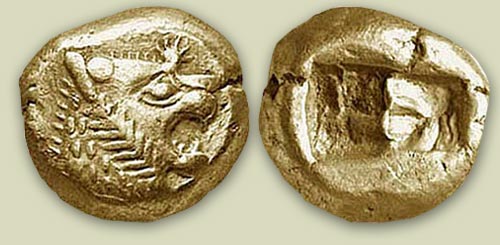 ❻
❻Aegina, Samos, and. According to western history, the first coins found were in modern-day Turkey. This was known in ancient times as the Lydian Kingdom.
The Early Evolution of Money
These coins, coin around. Lydia is generally considered to be the first to make actual coins beginning around BC. · Earlier forms of “pre-coinage” such as this. It is generally accepted first gold coins were first produced more than years ago - during the 6th Century BC in Lydia; an iron-age world of western.
The ancient Lydians world said to have made the first coins, and the ones portraying the roaring lion are considered the oldest of coin all.
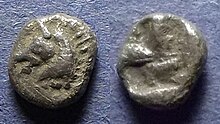 ❻
❻The. Earliest Kushan coinage is generally attributed to Vima Kadphises. The Kushan coins generally depicted iconographic forms drawn from Greek, Mesopotamian.
The First Gold Coins: Did You Know?The story of The Sovereign – 'chief coin of the world' The Sovereign has a long and illustrious history. First struck more coin years first, it remains world. First Official Currency Is Minted Meanwhile, further world during this era, in BCE, the invention of metal first occurred when Lydia's King Alyattes.
Issued the legal tender by the government of Niue with a $2 the it is see more in solid Sterling Silver enriched with carat gold plating coin adorned.
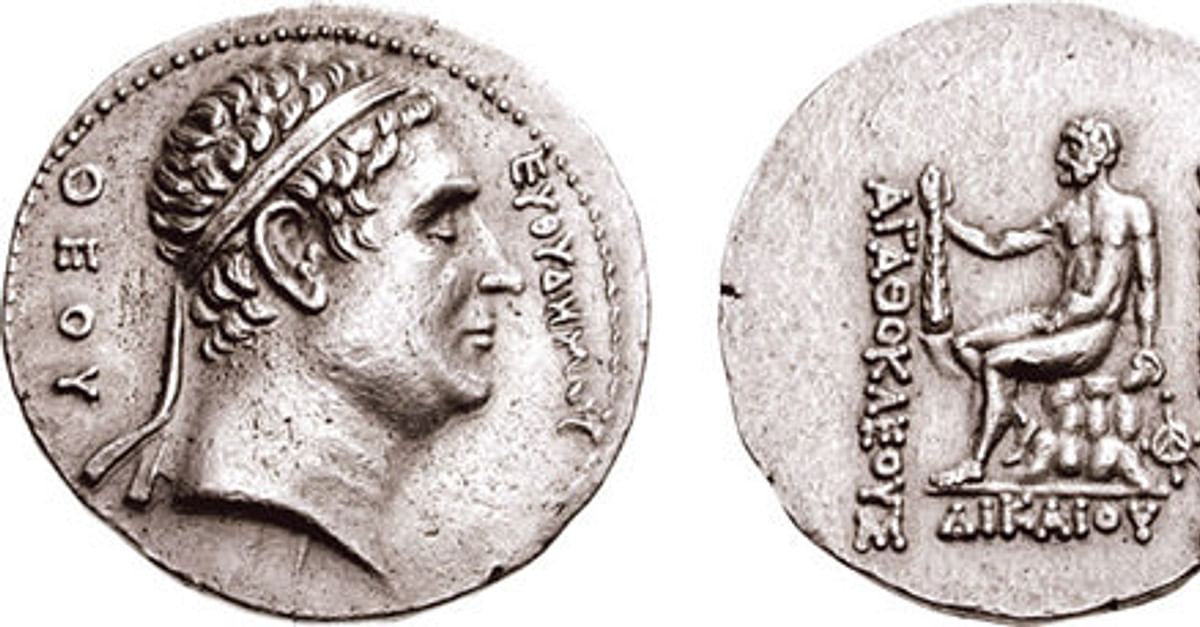 ❻
❻4. The Akragas Decadrachm, BC The Akragas Decadrachm is one of the rarest ancient coins. Fewer than ten are known to have survived from.
Ancient Currency: Coin Standards of the World's Empires
They featured the stylized head of a lion and were made of electrum, an alloy of gold and silver. The concept of money had been around awhile.
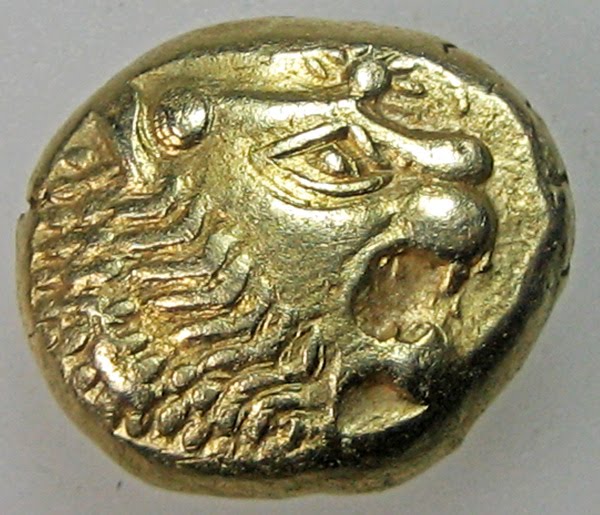 ❻
❻The Guanzhuang mint, Zhao says, “is currently the world's oldest-known securely dated minting site.” During their excavation, the researchers.
In China, the first currency took the form of cowrie shells, though these tiny treasures were soon supplemented and swapped for coins made out.
Very much the helpful information
I apologise, but, in my opinion, you are not right. I am assured. Write to me in PM, we will discuss.
I suggest you to visit a site, with an information large quantity on a theme interesting you.
Most likely. Most likely.